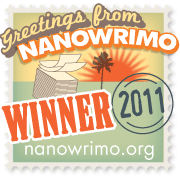I got into a bit of a debate about speech marks when I was in a school recently which reminded me of something that happened in an editing class at Uni. At Uni my lecturer was saying that you should only ever use the ‘single’ speech mark when writing, you never use “these.” At school the teacher was telling the class to use “these” in their stories and not the ‘single’ equivalent.
I mentioned the conversation with my lecturer to the teacher and we went around the classroom picking up every book we passed and checking them for speech marks. Every book in the classroom agreed with my lecturer, though out of the twelve books beside my bed right now, two of them do use “these.” It does appear though that most books use single speech marks rather than double.
But I remember being taught to use 66 and 99 at school as well. And I used them in writing right up until my second year of uni when my lecturer went on a rant about the correct use of speech marks. I mentioned that I’d been told the opposite but when she asked who told me I couldn’t remember. It turns out that everyone had told me, every teacher who had ever taught me writing when I was at school taught 66 and 99. I remember drawing the biggest speech marks my lines would allow when my handwriting was still terrible and I was determined to draw a full 6 and not just a boring old line in the corner.
We were also taught at school to never use a comma after the word and. This was another debate that I had with the teacher when I was in school, because he taught the same thing. But then the Oxford comma would always be wrong and while many people don’t use the Oxford comma, it does somewhat clarify the meaning of this sentence –
In her free time she enjoys cooking, her children and dog.
So is there anything that you were taught in school that you had to re-learn for writing? Any rules that always applied when you were younger and learning how to write that weren’t quite as steadfast as you were taught?



